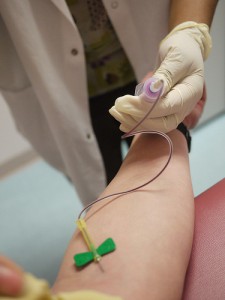Liver transplant recovery is important because although a liver transplant is a common surgical procedure, it is fraught with numerous complications. Once you are discharged after the liver transplant surgery, the nurse will fill out your schedule for medication and your post transplant prescription.
Liver Transplant Recovery Information
It is better to discuss the medication schedule beforehand with the doctor so that you don’t have any doubts later. You should familiarize yourself with the medication and let a family member or your spouse do the same.
A list of the prescribed medicines should always be kept in your wallet, close at hand to help you during liver transplant recovery.
Post Surgery Discharge
The coordinator will discuss and review the different aspects that you need to keep in mind once you’re home. It is recommended that you seek liver transplant recovery advice from known medical practitioners and the transplant team itself in case you have any more concerns regarding your condition. The transplant unit will then call you up and make appointments.

In most cases, you’ll need to meet the doctor twice a week for the first three weeks after being discharged to check for post liver transplant complications, and following this you’ll need to meet the physician once a week for 8 to 10 weeks and after that once every two weeks.
Blood tests and electrocardiograms will be scheduled during these visits to see if there are any abnormalities. The liver function will also be tested from time to time. Any symptoms of rejection or doubts regarding them should be raised immediately and without hesitation.
The First Few Weeks after Discharge
The first few weeks after your discharge may be very boring and many people tend to face anxiety during this time. It is imperative that the prescribed course of medication is followed in order to avoid any complications that can crop up during recovery after liver transplant.
Following this will help you return to your lifestyle and you will be back to normal in about 8-10 months.
Once this is done, you can get back to taking up workout routines, regular work, performing household chores and even follow an active sex life. The checkups after this will mostly be done once every six months at first and then only once every year. These checkups will be conducted by the transplant team.

The Surroundings You Live In
As the immune system is generally suppressed due to the medication, don’t stay in an environment that is prone to infections. Consult your doctor in case you feel any discomfort. Any medication that you take should be cleared by the doctor before you take it.
If you have had your liver transplant abroad, then you can ideally return to your home country in a year to avoid frequent flying during checkups. You should also consult with your transplant unit regarding this.
For women, life after getting a new liver can be normal. However, pregnancy and birth have to be closely monitored as there will be an increased risk of premature births.
New born babies should not be fed mother’s milk as there is a high chance that the immunosuppressant can be ingested by the infant. A survey conducted by the Elsevier, Global Medical News, mentions that out of a group of 160 women who got pregnant after a liver transplant, 10% lost their graft after pregnancy.
Once you know what to expect during the phase of your liver transplant recovery, you can keep a stern eye on the smallest of symptoms that your body might exhibit.